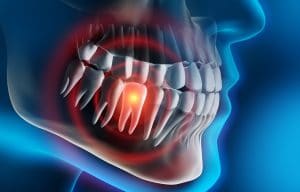 Besides the discomfort that it causes, one of the more distressing things about having a toothache is the prospect of what it might mean for your oral health. Healthy teeth don’t typically hurt, and if your toothache lingers for a while, then it could indicate varying levels of trouble with one or more of your teeth. Fortunately, at our Newhall, CA, dental office, we can help you find lasting relief for your toothache as well as ensure that your smile remains healthy. After diagnosing the specific cause of your toothache, we can custom-design the most appropriate treatment to address it and alleviate your discomfort.
Besides the discomfort that it causes, one of the more distressing things about having a toothache is the prospect of what it might mean for your oral health. Healthy teeth don’t typically hurt, and if your toothache lingers for a while, then it could indicate varying levels of trouble with one or more of your teeth. Fortunately, at our Newhall, CA, dental office, we can help you find lasting relief for your toothache as well as ensure that your smile remains healthy. After diagnosing the specific cause of your toothache, we can custom-design the most appropriate treatment to address it and alleviate your discomfort.
You should improve your hygiene
The biggest reason why your teeth shouldn’t hurt, even when eat or drink hot or cold substances, is because the enamel that surrounds them should stop any sensation from reaching the tooth. This enamel is highly mineralized, and can become weaker as oral bacteria attack it with acids and by depleting your teeth’s mineral content. If your teeth are growing sensitive, then weak or compromised tooth enamel may be the reason why. In many cases, improving your hygiene routine and receiving additional measures, such as fluoride treatment, can bolster your tooth enamel and your teeth’s defense against sensitivity.
You have a cavity developing
Oral bacteria are the building blocks of dental plaque and tartar, and when they remain long enough, they can seriously compromise your tooth enamel. When this happens, the bacteria can slip past it and reach the more sensitive main structure of the tooth, leading to tooth infection (decay) and cavities. The toothache resulting from a cavity is more serious than the sensitivity caused by weak enamel. If a cavity has formed, then the discomfort can begin to affect your ability to concentrate at work or school throughout the day. If caught early, the cavity may be treated effectively and conservatively with a tooth-colored filling.
Your teeth roots are exposed
If your teeth are otherwise healthy, but your gums aren’t in their best shape, then tooth sensitivity could be one of several indications. For example, when gingivitis (the first phase of gum disease) develops, your gums can begin to recede, or pull away, from your teeth. This exposes the roots underneath, which aren’t protected by enamel, making your teeth increasingly more sensitive. The more your gums recede, the more gum disease can advance, and the more symptoms will begin to accompany your sensitive teeth.
Find out what your toothache means
Having a toothache can mean many different things, and before finding permanent relief from it, you have to understand what’s causing it. For more information, schedule a consultation by calling Newhall Dental Arts in Newhall, CA, today at (661) 259-7760.



